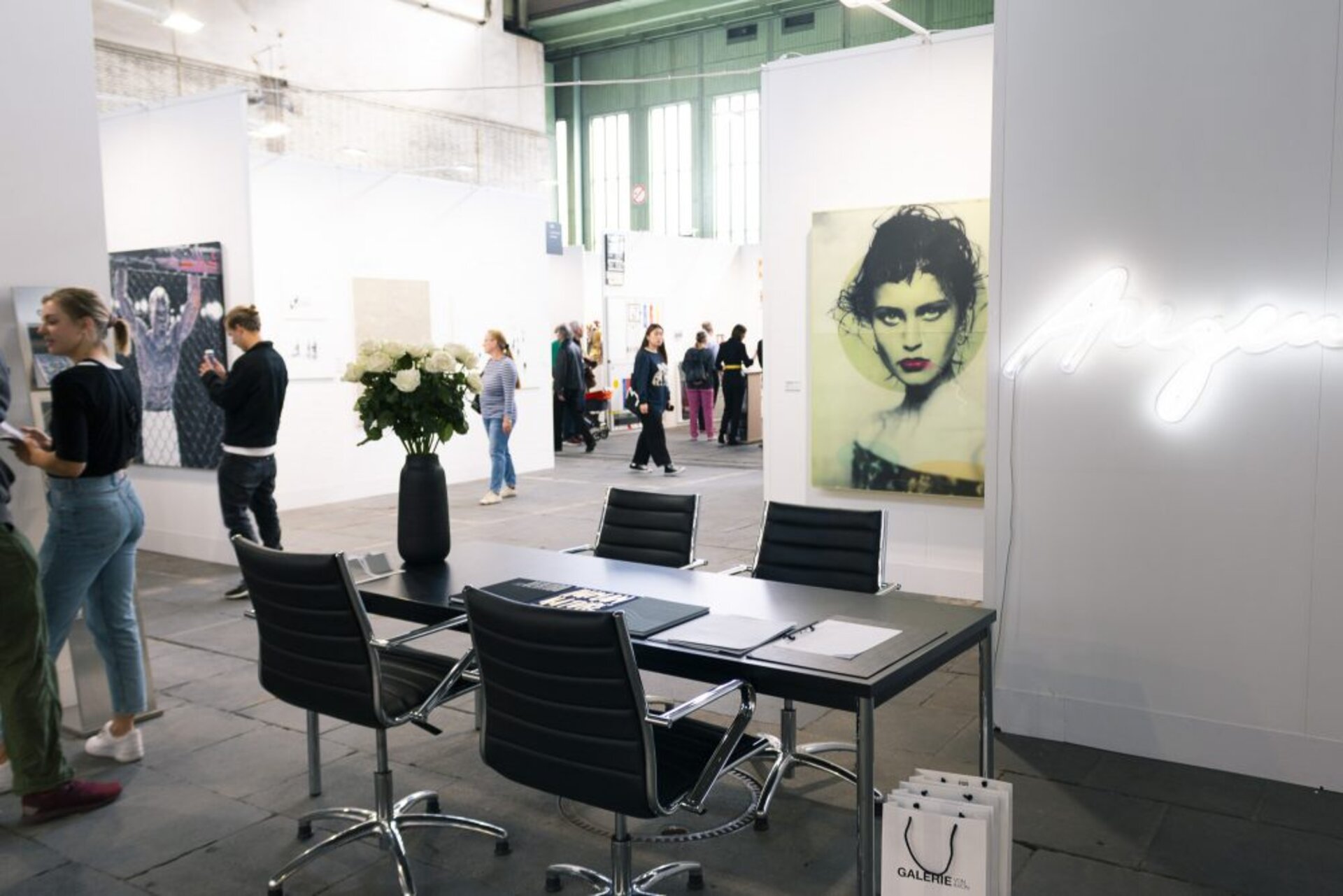
Positions Berlin
12.Sep - 15.Sep 2019
For its sixth edition, POSITIONS Berlin is once again moving to Hangar 4 at Berlin-Tempelhof Airport and offering its visitors an attractive supporting program in close proximity to art berlin. The fair is an official partner of the parallel Berlin Art Week.
On 60sqm we present these five positions:
Gunda Förster
Josef Hirthammer
Constantin Schroeder
Leszek Skurski
Miriam Vlaming
Location: Tempelhof Airport - Hangar 4
Columbiadamm 10, 10965 Berlin
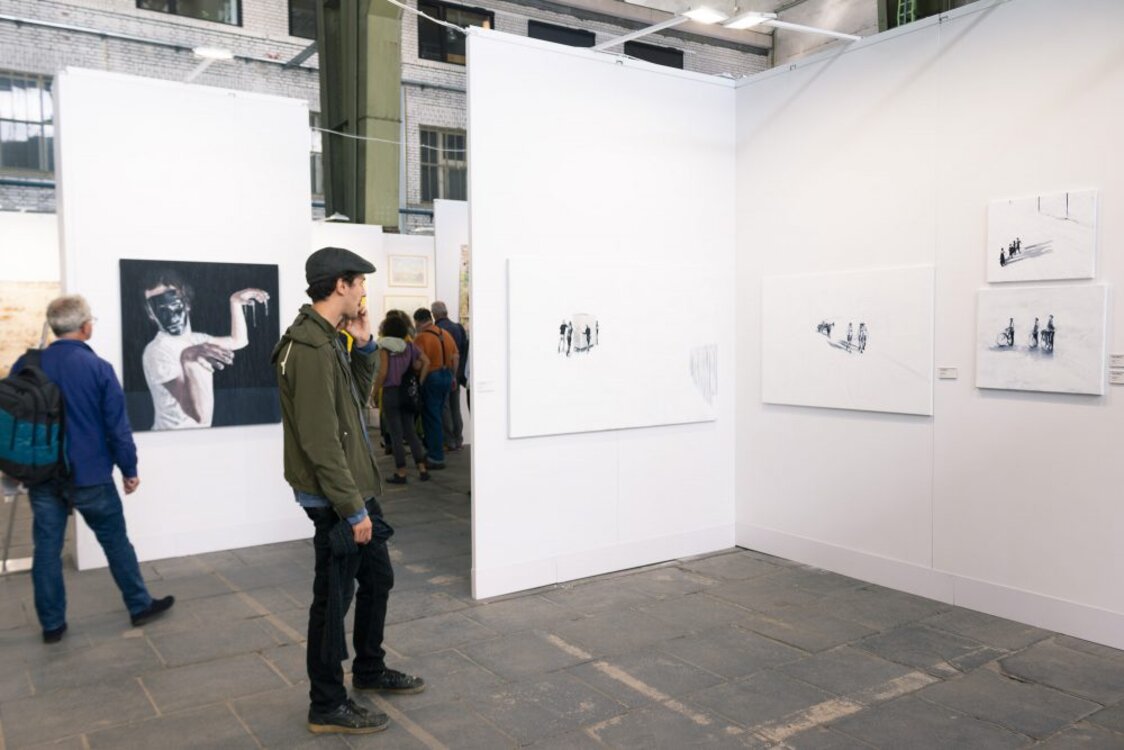
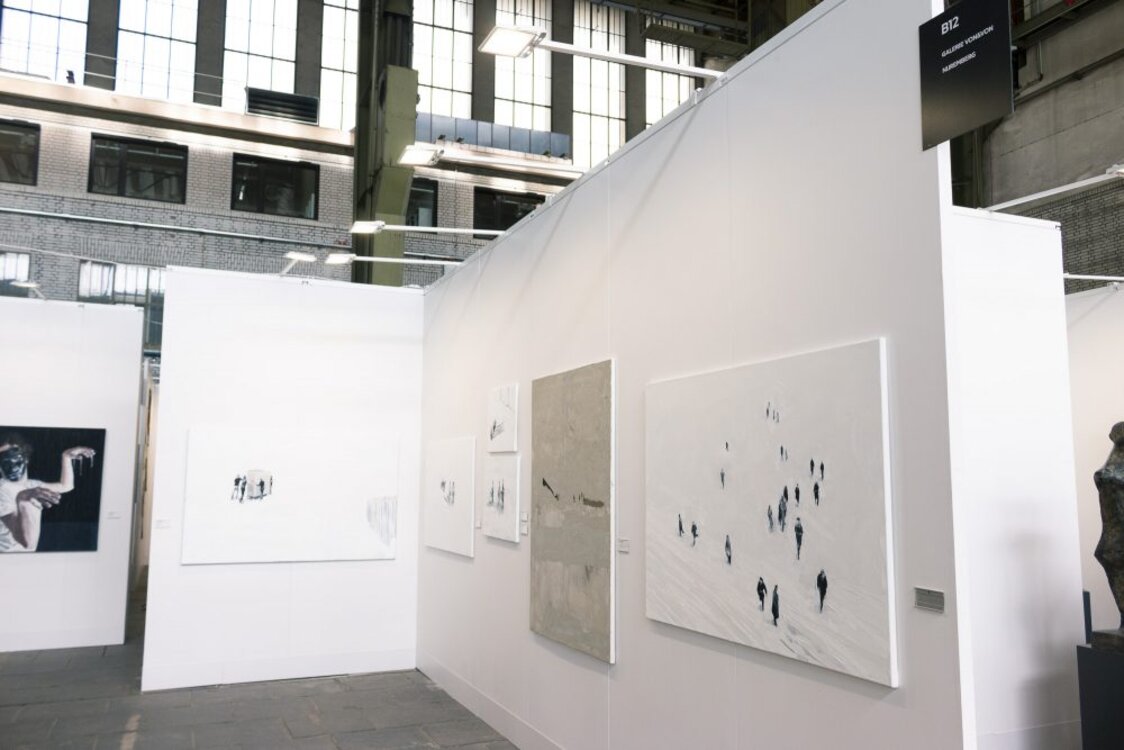
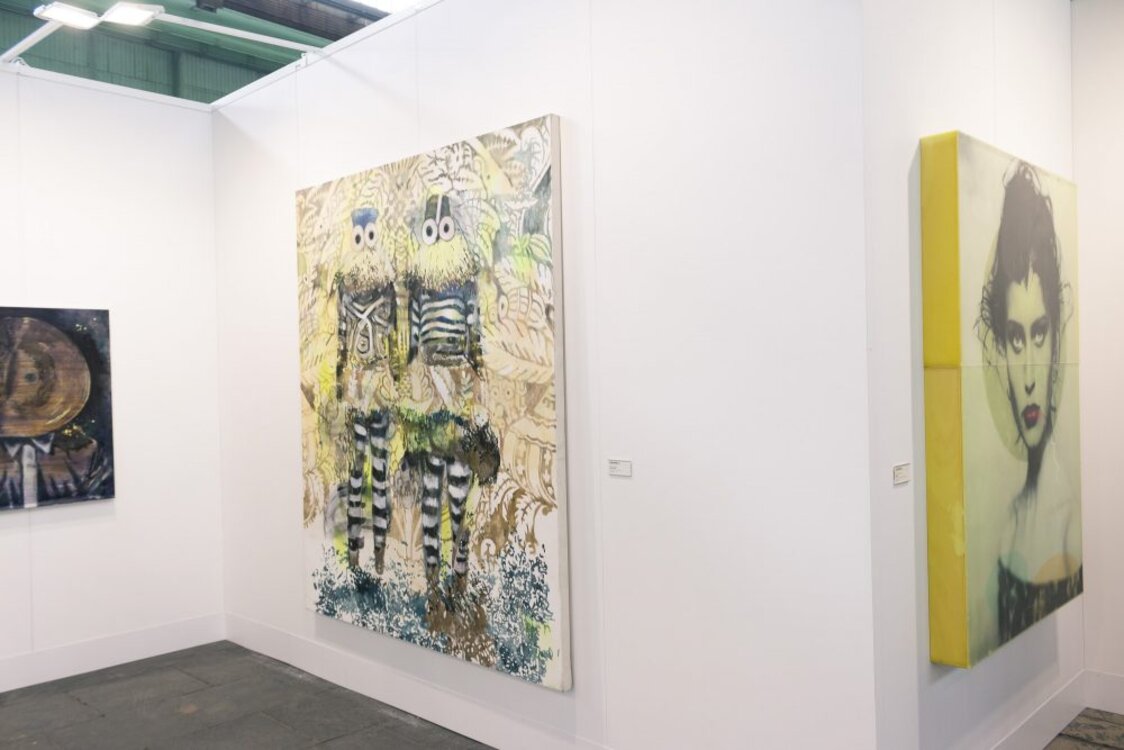
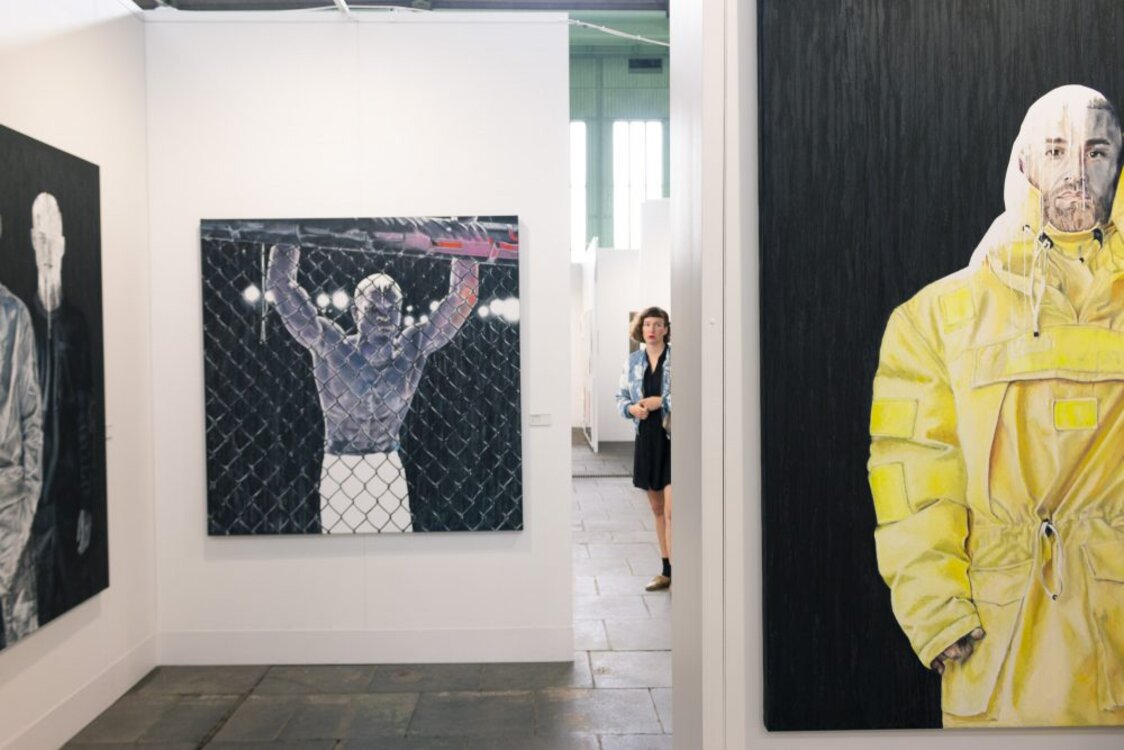
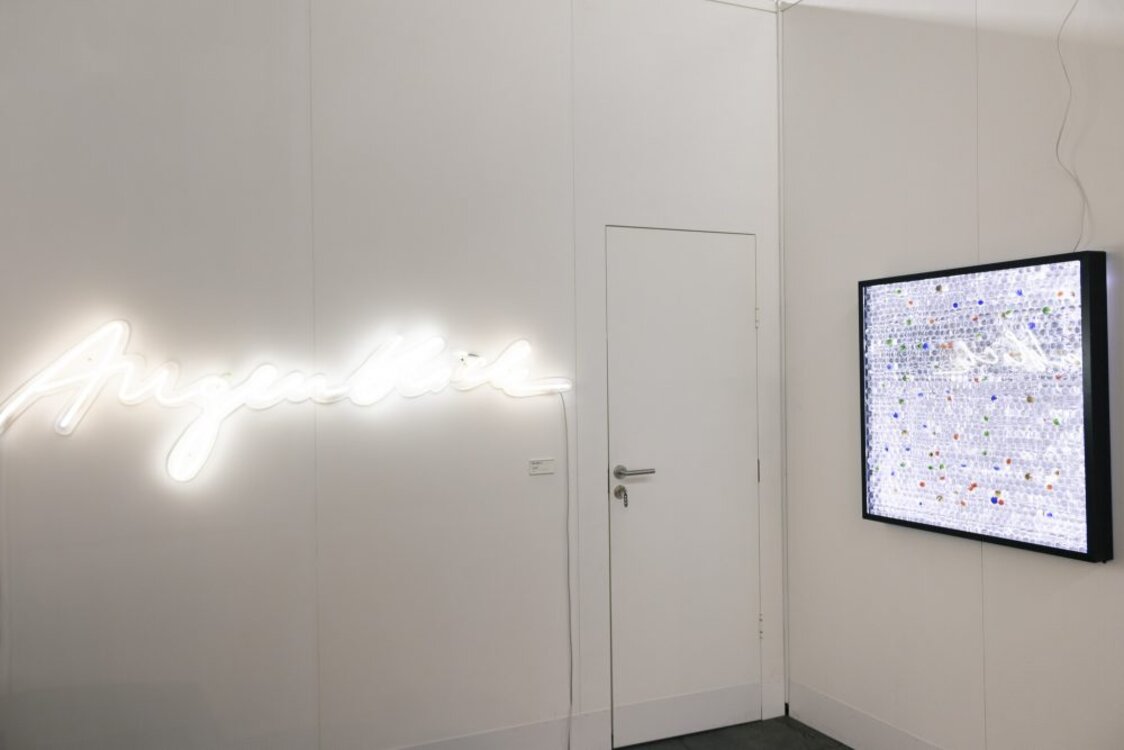
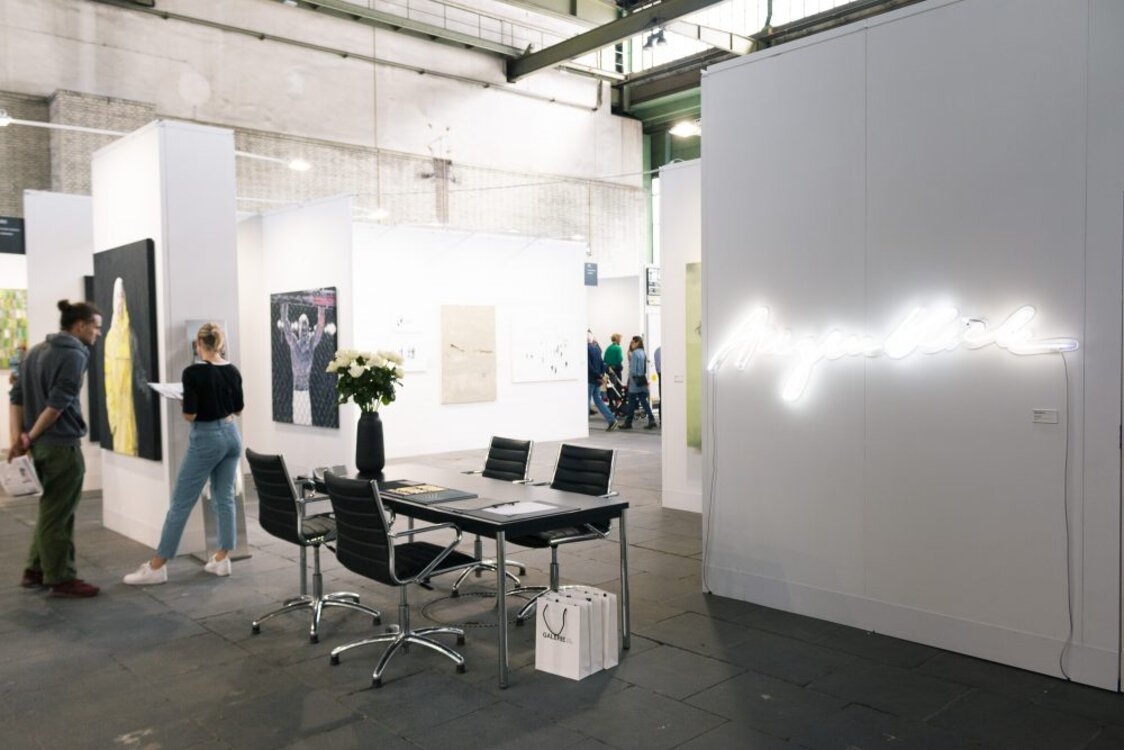
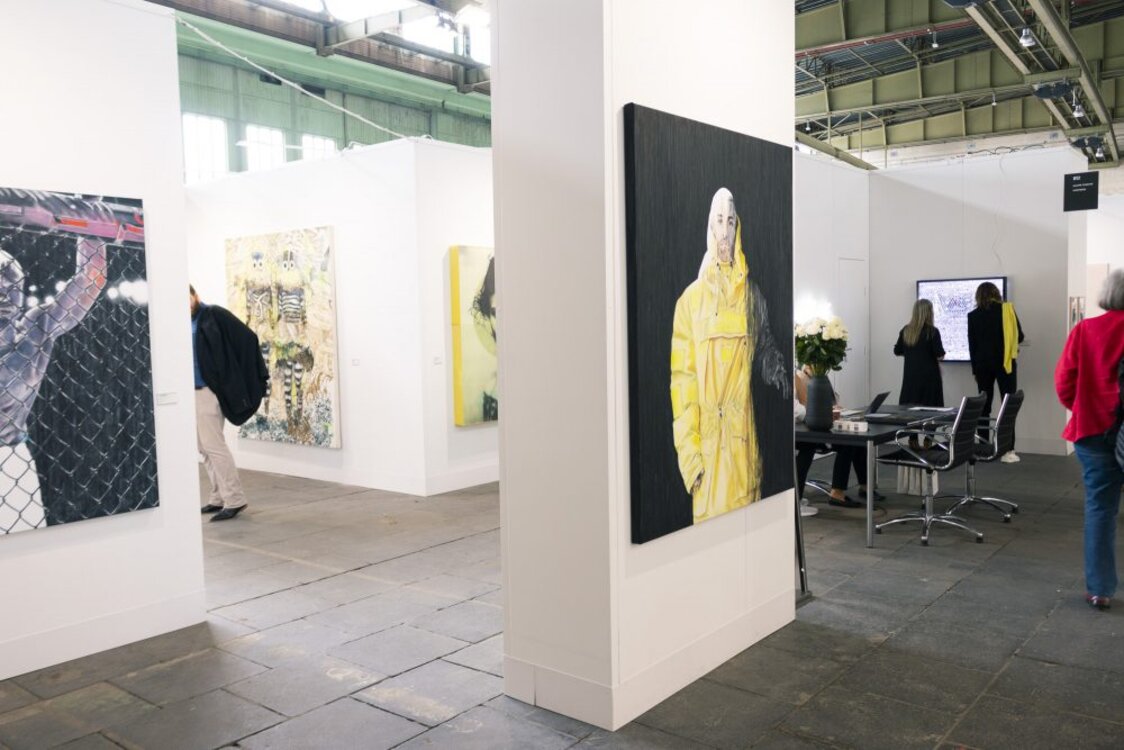

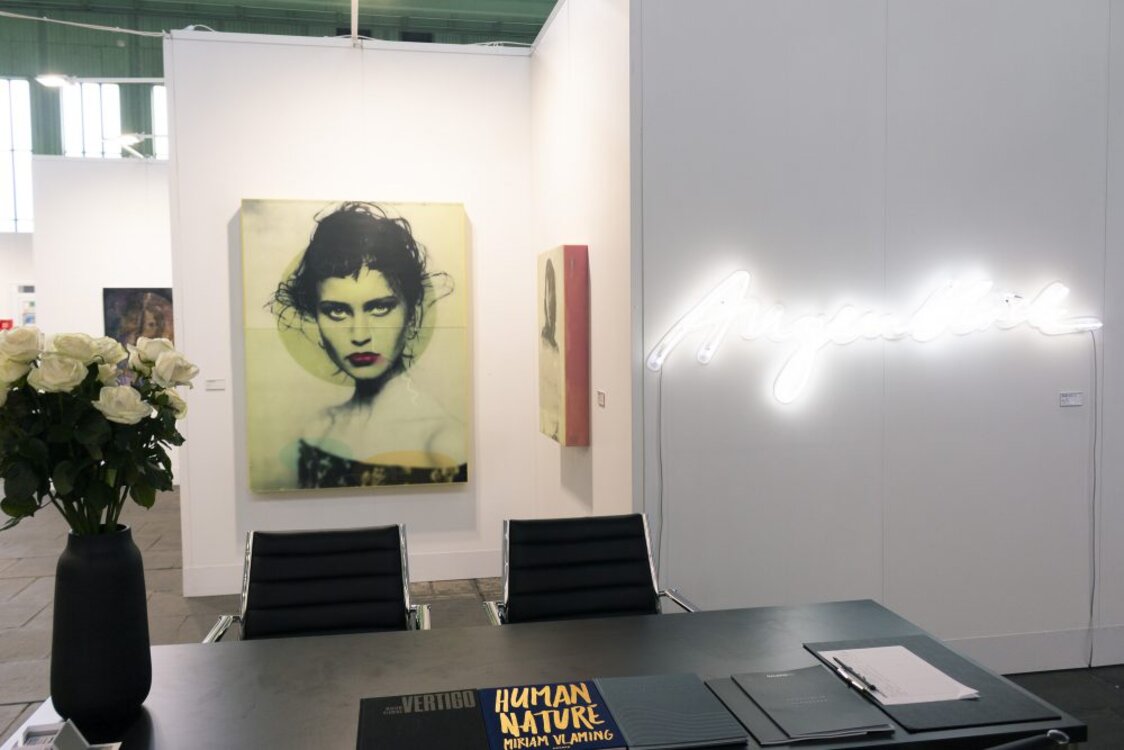
Gunda Förster
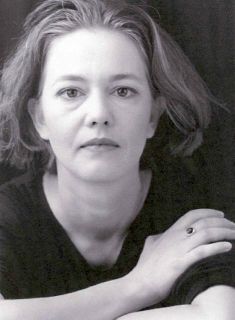
Based on an expanded concept of the image, the light-space-movement and time in the network of relationships between art and everyday life are the fundamental aspects of Gunda Förster's artistic work. Her space-related works can be understood as painting with contemporary methods or places of body and space perception that play with spatial reflection, but also social and perceptual-psychological conditions from the most diverse creative means. An important element of her work is defining and breaking boundaries - the architecture of space, of the image, the boundary between art and everyday life, between art, architecture, design and advertising, practical and theoretical debate, product and process, private and public, and reality and appearance. The formal reduction of her works determines their symbolic quality. The significance is only revealed by linking the most diverse aspects and their meanings. Essentially, Gunda Förster’s works focus on the correspondence between light, space, movement, and time as aspects that are constantly present in everyday life as well as in art.
To the artist page
Josef Hirthammer
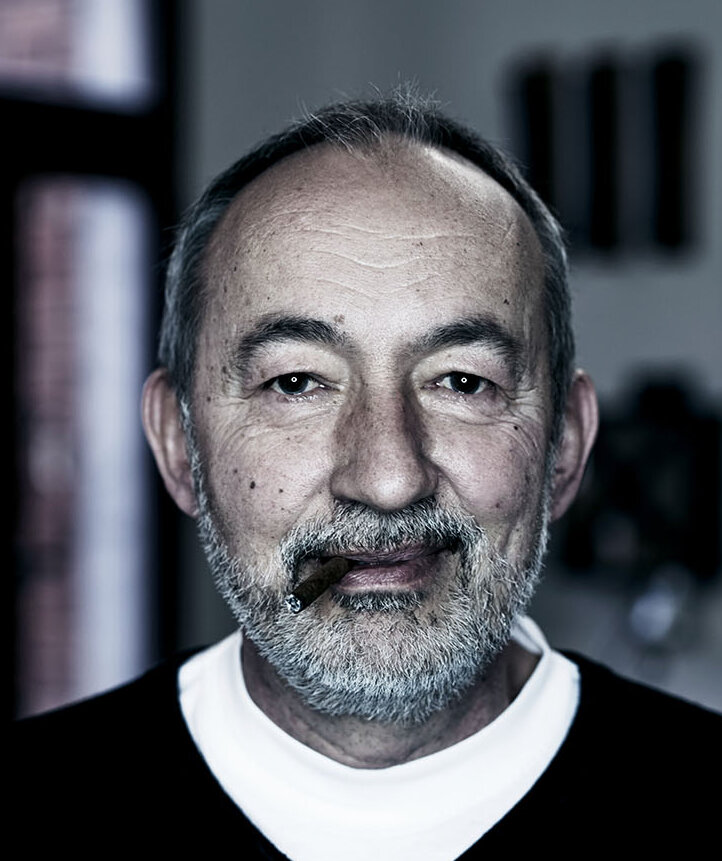
Josef Hirthammer has been working as a visual artist for over 40 years. His œuvre is extremely complex and defies categorization. The broad artistic range is reflected in the different design mediums, such as painting, drawing, photography, digital painting, sculpture, and installations. In terms of content, Josef Hirthammer focuses on portraits as well as ecological and philosophical themes, which he approaches through his work series. He is an outspoken nature enthusiast who transforms his encounters with nature into art objects. He is primarily interested in the producing, generating, creative, and active nature, which becomes effective from itself and which in the philosophical tradition has been equated with the source of all finite things. The artist, who lives and works in Fürth, views nature as a macro- and microcosm of its own with a unique aesthetic. This way of thinking provides him with inspiration for his works of art.
To the artist page
Constantin Schroeder
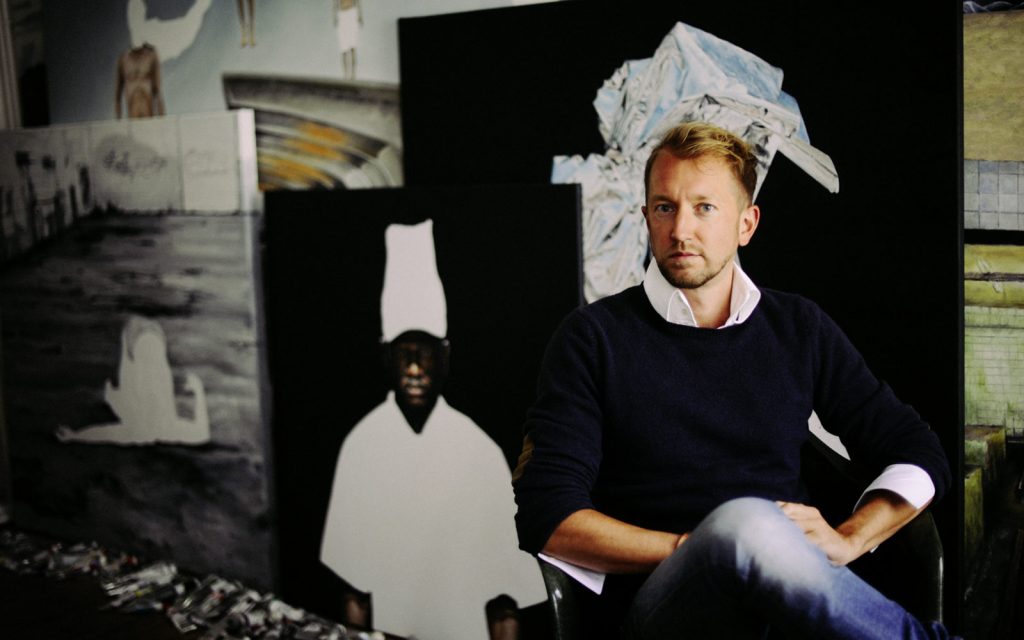
Constantin Schroeder's figurative paintings are impressive, moving images with a profound sense of depth. His pictorial protagonists are fascinating characters that never let us go. Internalizing the present with all its complexities, he uses a very reduced color palette. Mostly executed in large formats, the scenes captivate the viewer with their characteristic narratives. Schroeder reaches deep into the archive of the human psyche. His works reveal an enigmatic iconography, which includes young heroes posing interpersonal mysteries. The artist, who lives and works in Berlin and studied theology, philosophy, and art history, also illuminates the darker sides of life in an extraordinary, hyper-realistic style. These are powerful images that captivate us with their enigmatic pictorial content. Schroeder leaves some parts of the image white, which allows the viewer to develop his or her own interpretation and understanding of the image through open associations.
To the artist page
Leszek Skurski

On Painting, Silence, and the Flow of Time
Leszek, many of your collectors describe your paintings as especially calm, even meditative.
Do you yourself experience that calmness while painting – or is your studio life quite different?
It’s probably the colour white that makes this sense of calm feel so present. I never explicitly searched for calmness, but I do like working in an environment where I’m not distracted. That said, painting is not monotonous in my case – it’s very focused, and never truly quiet.
You work in Fulda and sometimes in Mallorca – a place of light and vastness – and you grew up in Poland.
How do these contrasts influence your sense of space, colour, and artistic identity?
That’s a question I ask myself a lot. I grew up in Gdańsk in the 1980s, where
everything was quite grey in general. I think that’s why monochrome compositions came so naturally to me. It’s not that I don’t enjoy working with colour – I do, very much. But somehow, ideas in white feel more honest to me.
Your recent monograph mentions the importance of “happy accidents.”
Has there been a recent moment when chance unexpectedly enriched a painting?
Yes, of course – usually out of frustration when something doesn’t work. Then I completely change the concept to free myself from the idea I no longer believe in. Sometimes it’s even worse. But sometimes, something remarkable emerges. Then I ask myself: What did I just do?! And it’s hard to repeat.
The playwright Heiner Müller is quoted there, saying: “It’s the leap that creates the experience – not the step.”
Has there been a particular leap in your practice or career that felt especially important?
Yes – but you only recognise it much later. That’s the strange thing about art. You try things, experiment, keep creating, and eventually you can look back and see the leaps. I still believe that my piece Abgang was such a leap. It was the moment I knew what I had to do – no doubts. A complete flow.
Many people wonder when you decide that a painting is finished.
Is there a clear moment, a specific feeling – or is it different each time? There’s that old truth among artists: it’s finished when it’s hung on the gallery wall. Over time, I think each artist develops a feeling for that particular moment – the sense that the work couldn’t be any better.
Your works are neither loud nor explanatory – and that’s what makes them timeless.
Is that openness something you aim for – or does it emerge in the process? Wait a minute! Some of my paintings actually scream at me. I know they have that energy – and they can also be extremely quiet. That kind of contrast heightens the atmosphere and maybe helps others step into my world. At least I hope so.
You’ve created nearly 3,000 works, yet you still seem curious and open to new directions.
Is there anything you’re determined to explore or change in the future?
It feels like I still need to paint ten times that amount. It’s hard to decide what to do next – and at the same time, it’s a great feeling to know the time is limited. That makes each decision more important. I’ve planned so many concepts, but there’s only so much time.
Just today I spent hours photographing and observing cliffs. An incredible subject – art historically, a total highlight. But to do it justice, I’d probably need two years. I still need to think about it.
One last question, almost poetic:
In many of your paintings, different moments seem to take place simultaneously – as if time is dissolving.
Do you feel a different sense of time while painting?
Yes, very poetic – and I think that’s partly why we do what we do, as artists: to stop time. Both within the artwork and during the process itself. The world keeps turning, and I invent my own time machine – using paint and dirty hands... oh, sorry: paint isn’t dirt.
To the artist page
Miriam Vlaming
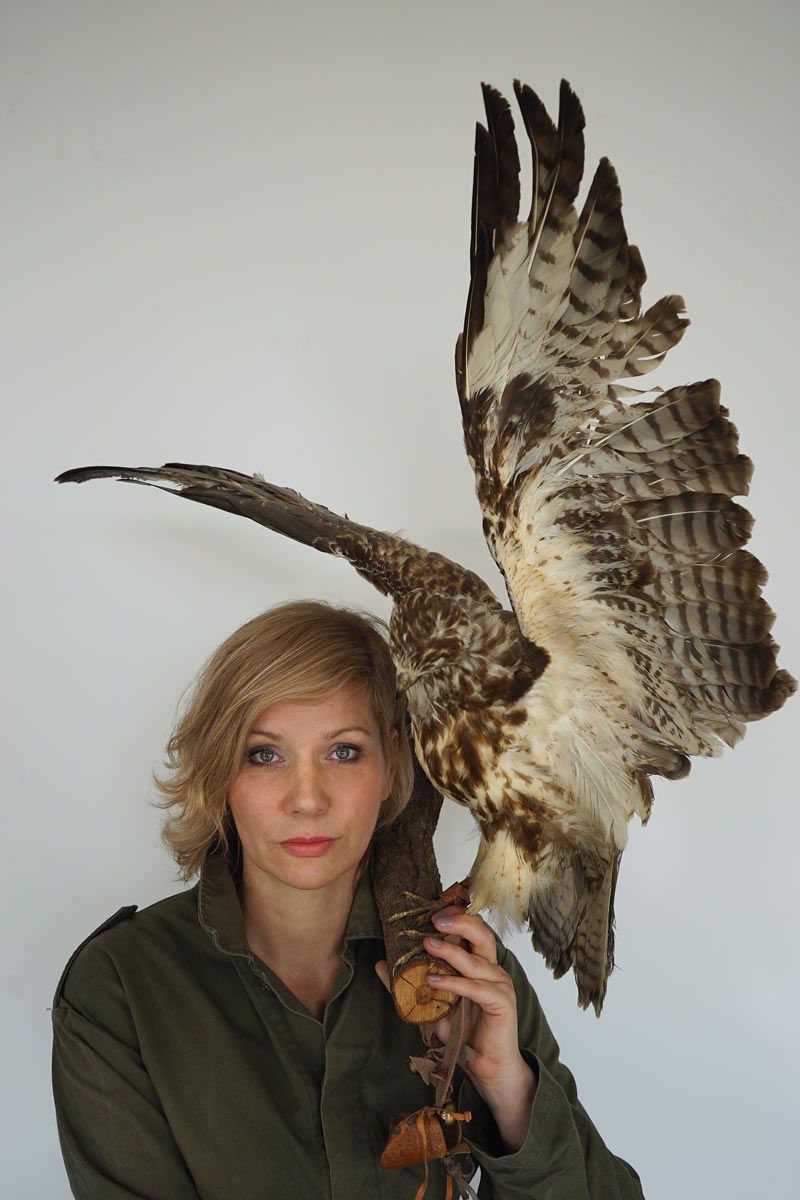
In Miriam Vlaming's large-scale paintings in egg tempera, the painter breaks down the boundaries between man and nature as well as past and reality. She creates a harmonious symbiosis between these supposed opposites through hazy layers created by the application and removal of paint. In doing so, she allows the depicted figures to emerge from a natural, dreamlike environment. Through this aesthetic, Vlaming opens the viewer's eyes to the multifaceted aspects and philosophical questions of being human, which she addresses in her paintings. Miriam Vlaming always has the overall picture in mind in her mysterious pictorial worlds. She plays with ambiguous metaphors. “Disruptions and contradictions interest me ... the moment after or before something has happened...not the history." Her egg tempera paintings satisfy a deep human need for knowledge. The important member of the New Leipzig School studied at times with Neo Rauch. She was a master’s student under the direction of Arno Rink and is represented in numerous public and private collections.
To the artist page